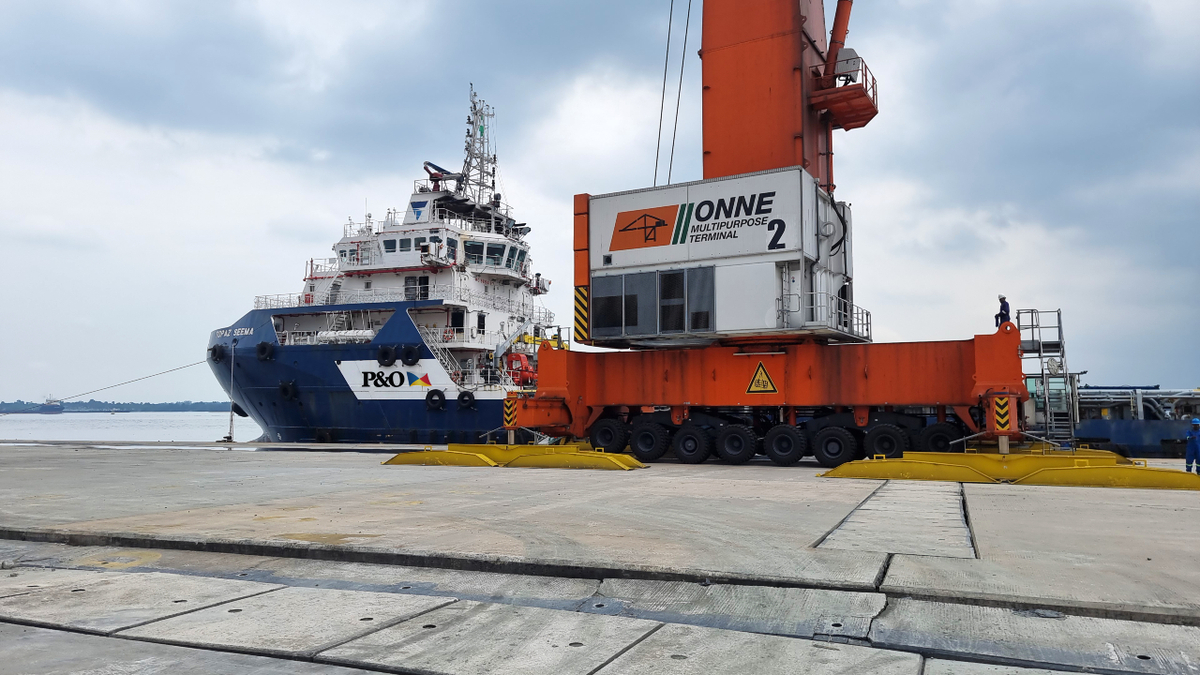Supply Chain for Naval Logistics in Nigeria – Supporting Maritime Defense with Efficient Procurement and Delivery
A well-functioning supply chain is the backbone of any defense operation—especially for naval forces operating in dynamic maritime environments. In Nigeria, where the Navy plays a critical role in coastal defense, anti-smuggling operations, disaster response, and joint task force missions, the supply chain for naval logistics must be secure, responsive, and resilient.
This article explores the structure, challenges, and solutions surrounding naval logistics in Nigeria and how Wigmore Trading supports the Nigerian Navy and other maritime defense agencies with reliable, government-compliant supply chain services.
What Is Naval Logistics?
Naval logistics refers to the planning, acquisition, transport, and distribution of resources—such as food, fuel, equipment, and spare parts—required to sustain naval operations at sea and ashore.
The supply chain for naval logistics typically involves:
-
Procurement of goods and materials
-
Warehousing and inventory control
-
Transportation and last-mile delivery to naval vessels or shore units
-
Maintenance and repair support (MRO)
-
Emergency resupply and mission-specific provisioning
A robust logistics network ensures Nigeria’s maritime defense assets are mission-ready and capable of rapid response.
Key Components of Nigeria’s Naval Supply Chain
1. Centralized Procurement through Government Tenders
-
Conducted by the Ministry of Defence and Nigerian Navy Logistics Command
-
Requires BOQ submissions and vendor compliance
-
Covers recurring needs (food, uniforms) and mission-specific supplies (fuel, spares)
2. Strategic Storage and Distribution
-
Naval bases at Lagos (Apapa), Calabar, Port Harcourt, and Warri serve as logistics hubs
-
Use of bonded and cold storage facilities for perishable or sensitive items
-
Secure, controlled-access environments for military-grade supplies
3. Multi-Modal Transportation
-
Land freight to naval installations or dockyards
-
Ship-to-ship transfers for offshore delivery
-
Inland waterway access for riverine operations via NIWA-controlled routes
4. Integrated Inventory Management
-
Stock control systems to track usage and replenishment
-
Support for repair and maintenance parts rotation
-
Scheduled provisioning for long-term deployments
Challenges in Nigeria’s Naval Logistics Supply Chain
The naval supply chain in Nigeria faces several operational challenges:
-
Port congestion and customs delays
-
Security risks during land and sea transit
-
Difficult terrain and limited access in riverine or conflict-prone areas
-
Coordination gaps between logistics units and operational commands
-
Limited local availability of specialized technical parts
These require experienced logistics contractors who understand military needs, can operate under pressure, and meet tight timelines without compromising compliance.
How Wigmore Trading Supports Naval Supply Chains in Nigeria
Wigmore Trading has earned a reputation as a trusted procurement and logistics partner to Nigeria’s defense and maritime sectors. Our services align with the needs of naval logistics supply chains at every level.
1. Compliant and Efficient Procurement
-
Registered contractor with MOD, Navy, and public sector agencies
-
Direct sourcing from certified OEMs and global distributors
-
Fast BOQ response and compliance documentation
2. Storage and Handling
-
Warehousing for food, fuel, spare parts, and uniforms
-
Cold chain support for perishables and medical supplies
-
Secure bonded storage for customs-exempt and high-value goods
3. Transport and Onboard Delivery
-
Port delivery at Apapa, Onne, Warri, and Calabar
-
Onboard supply coordination with naval dockmasters
-
Emergency deployment for disaster response or joint operations
4. Mission Support and Resilience
-
Ability to scale up supply during exercises or conflict events
-
Inventory rotation programs for base stores and long-haul vessels
-
24/7 response for critical naval missions and strategic support
Whether provisioning a fleet, restocking a base, or responding to a mission surge—Wigmore Trading can help. We deliver military logistics solutions that work.
Conclusion
The supply chain for naval logistics in Nigeria must operate with speed, precision, and compliance. From sourcing and transport to delivery and inventory control, every link in the chain affects national readiness and security.
Wigmore Trading provides full-spectrum supply chain solutions for Nigeria’s naval forces—helping defense leaders streamline logistics, reduce downtime, and respond with confidence.








Comments are closed.